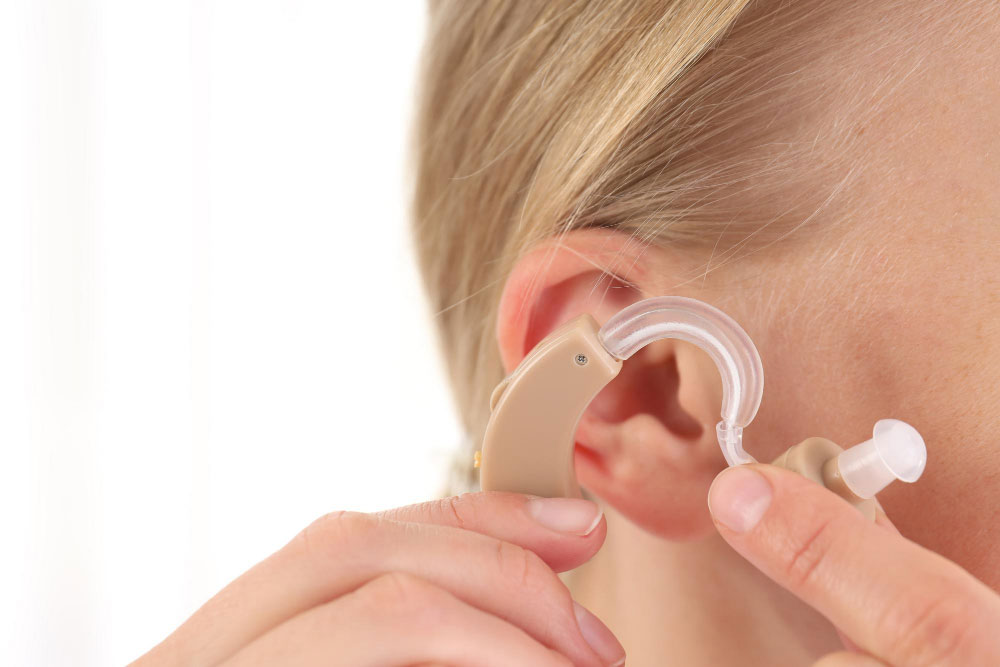Losing your ability to hear doesn’t just impact your sense of hearing. It can have far-reaching negative effects on how you live your life. Losing one’s hearing can significantly affect a person’s mental well-being. Hearing loss can negatively impact an individual’s mental health more than any other sense.
Hearing loss can have a serious impact on your ability to communicate and your ability even to hear sounds that aren’t intended. Fortunately, there are many treatment options for hearing loss, and the earlier hearing loss is detected and treated, the better your chances of maintaining your hearing throughout your life.
Removing Wax Blockage
The wax blockage is caused due to bacteria, dirt, and dead skin cells. The wax is produced in the hair follicle, and ear wax blockage occurs due to the accumulation of this wax. The ear wax blockage leads to ear wax accumulation; the blocked ear wax causes reduced hearing and earache. If ear wax is not removed from the ear, then it causes an earache. Ear wax buildup also blocks the ear and affects its function.
Earwax buildup is irritating. It’s uncontrollable, it’s hard, and it hurts. So, naturally, you want to do what you can to eliminate it. Unfortunately, there’s only one way to get rid of earwax: the ear itself has to do it. However, there are ways to make it easier and more comfortable so that your ears can shed away that earwax on their own.
There are over-the-counter products and home remedies, but the easiest and most effective course of action is to get a professional to remove the wax for you.
Surgical Procedures
When considering options for hearing loss due to ear wax buildup or ear infections, you should know that not all ear conditions require surgery. It’s important to understand every type of procedure, including laser treatment, ultrasound, and tympanoplasty. Get more details about each of these procedures and how they can help you hear better.
Like most medical issues, hearing loss isn’t an overnight fix: you need to undergo a series of treatments that work together to improve your hearing. Surgery for hearing loss is no different. Surgery for hearing loss affects the outer, middle, and inner ear; depending on the severity of the hearing loss, your surgeon will correct all three areas.
Hearing Aids
Hearing loss can have adverse effects on a person’s health and wellbeing, including mental and physical health, and can lead to social isolation and depression. Fortunately, there are several ways to combat hearing loss, including a hearing aid. Hearing aids are small electronic devices that amplify sounds and help those with hearing loss hear more clearly.
Hearing aids reduce the severity of your hearing loss and allow you to hear better. There are different types of hearing aids available, and while some may be more expensive, it’s important to remember that hearing aids are an investment in your quality of life.
Cochlear Implants
There are several methods for treating hearing loss, and it seems like a new device is on the market every day. However, one of the most accessible, effective, and life-changing treatment methods for hearing loss is a cochlear implant, also known as a bionic ear. Many patients have found great success with the devices and can feel just as comfortable going out in public as those who don’t have hearing loss.
Cochlear implants aren’t an option for everyone, but they can work wonders for many people, allowing them to regain the ability to hear. The process involves inserting a processor into your inner ear, which picks up the sound and transmits it to electrodes in your ear. You can then program these electrodes to respond to different sounds, producing the sound you can understand.
Bone-Anchored Hearing Aids
These hearing aids are surgically inserted into the bone behind the ear and work like traditional behind-the-ear hearing aids. Patients are able to hear better, and upper-lip tremors and facial movements, such as chewing and smiling, are less likely to be muffled. The discreet hearing aids can be inserted and removed by the patient, with or without the help of an audiologist, and worn with ordinary clothing.
Bone-anchored hearing aids, also known as Osseo integrated implants, are surgically implanted directly into the skull. Patients receive a small round device—often made from titanium—that gets implanted into the skull, where they sit behind the outer ear. A thin wire connects them to a standard behind-the-ear hearing aid.
Hearing Rehabilitation
Hearing loss comes in many forms, ranging from mild to severe. When hearing loss becomes severe, our hearing can greatly impact our quality of life. However, many people have no idea they have hearing loss until it is too late.
Fortunately, there are many rehabilitation services to help those with hearing loss, and you can take charge of your hearing health by receiving treatment. Many people don’t realize a hearing aid can help restore hearing, but treatments such as adaptive listening devices and tinnitus management can help restore hearing function. If you’re looking for additional treatment options for hearing loss, you can check out clinical trials for Hearing loss that would be helpful at Power.

